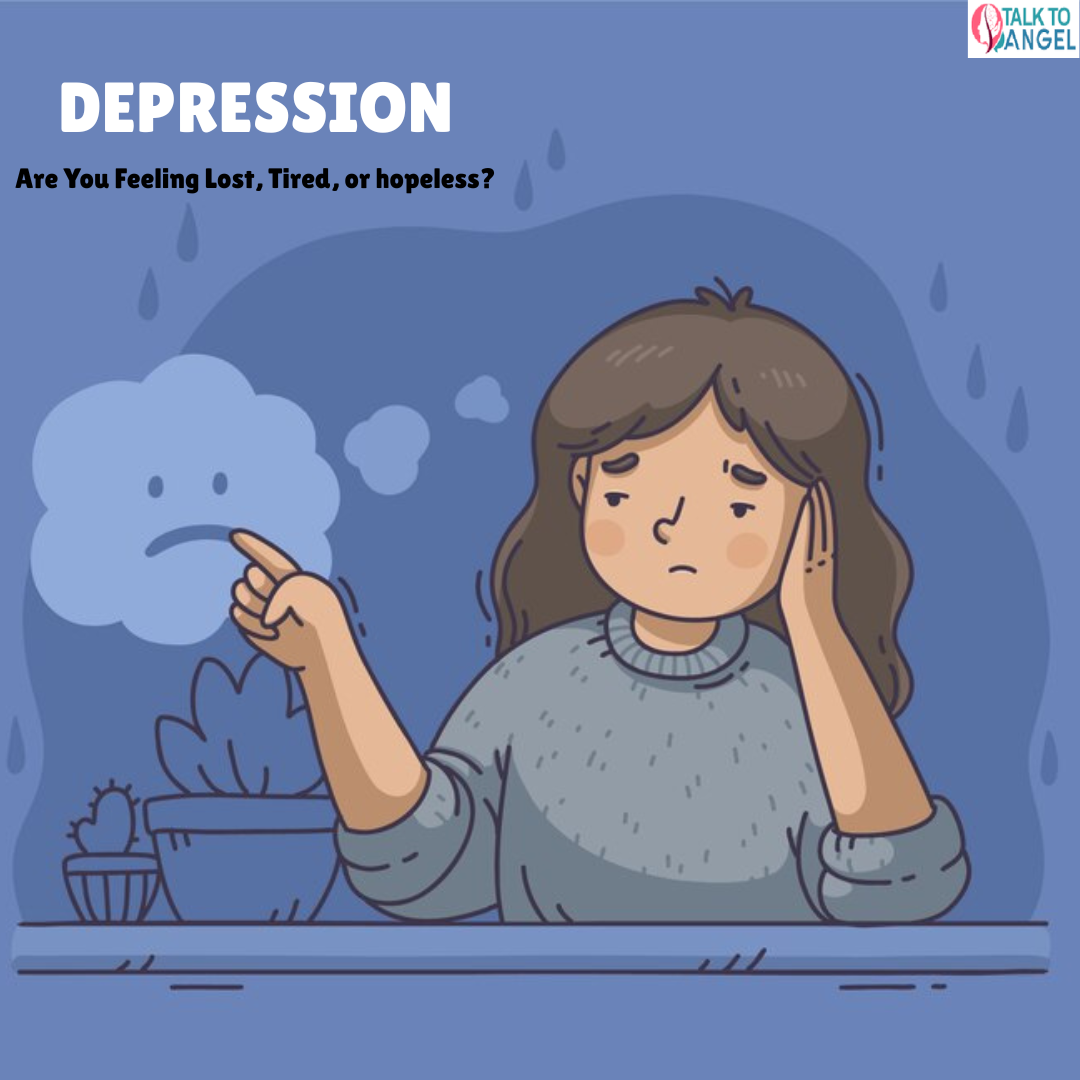Going through a difficult time or feeling depressed are only parts of depression. It is a serious mental health condition that can impact every aspect of life, including your emotions, thoughts, and physical health. While everyone experiences moments of sadness or grief, clinical depression is more persistent and may worsen over time if left unaddressed.
Recognizing the early signs that depression is taking over is crucial to seeking timely help. Unfortunately, depression often creeps in subtly, making it difficult to detect at first. However, there are clear warning signs and symptoms to watch for. Early detection and seeking professional depression counselling in Delhi or other reliable mental health services can be life-changing and even life-saving.
1. Persistent Feelings of Sadness or Emptiness
One of the most common and telling signs of depression is a pervasive feeling of sadness or emptiness that lasts for weeks or even months. If you find yourself feeling down without a clear reason, or if your low mood persists regardless of positive changes in your life, it could be a sign that depression is taking over.
2. Loss of Interest in Activities Once Enjoyed
When depression begins to take hold, people often lose interest in hobbies, social events, or even spending time with loved ones. Activities that used to bring joy now feel burdensome or pointless. One of the main signs of depression is this state, which is called anhedonia.
3. Changes in Appetite or Weight
Depression can cause significant changes in eating habits. Some individuals may overeat for comfort, leading to weight gain, while others may lose their appetite entirely and experience rapid weight loss. Both extremes are red flags and should not be ignored.
4. Sleep Disturbances
Insomnia (difficulty sleeping) or hypersomnia (excessive sleeping) are both associated with depression. People with depression may find it hard to fall asleep, wake up frequently during the night, or sleep excessively during the day. Poor sleep quality can further exacerbate other symptoms, creating a vicious cycle.
5. Fatigue and Lack of Energy
Another sign that depression is taking over is constant fatigue or a feeling of sluggishness. Even after a full night’s rest, individuals with depression may struggle to find the energy to complete everyday tasks or maintain focus.
6. Difficulty Concentrating or Making Decisions
Depression can cloud judgment and impair cognitive functions, making it difficult to concentrate, remember things, or make decisions. Once, simple tasks may now feel overwhelming or impossible to complete.
7. Feelings of Guilt or Worthlessness
People suffering from depression often experience excessive guilt, shame, or feelings of worthlessness. They may blame themselves for things that are not their fault or feel as though they are a burden to others. These feelings can deepen the depressive state and make recovery more difficult without professional help.
8. Physical Aches and Pains
Depression doesn’t only affect the mind; it can manifest physically. Many individuals report experiencing headaches, stomach issues, back pain, or other unexplained aches. When no medical cause can be found, it may be a sign that emotional distress is being expressed through physical symptoms.
9. Social Withdrawal
If someone begins to isolate themselves from family and friends, skips work or school, and avoids social interaction, it may be a sign that depression is worsening. Social withdrawal is a coping mechanism for many individuals who feel emotionally overwhelmed.
10. Suicidal Thoughts or Behaviors
Suicidal or self-harming thoughts may result from severe depression. The most concerning indication is this one, which calls for quick action. If you or someone you know is experiencing suicidal thoughts, it is essential to seek help from a qualified mental health professional or emergency services.
Why Professional Help Matters
Identifying the signs of depression is only the first step. What comes next is seeking professional help. Fortunately, there are many resources available for depression counselling and depression treatment in Delhi.
The Psychowellness Center is one such leading mental health facility in Delhi offering evidence-based care for individuals battling depression. With a team of experienced psychologists, psychiatrists, and therapists, the center provides personalized treatment plans that include therapy, medication management, and lifestyle support.
Whether you’re experiencing mild symptoms or more severe depressive episodes, timely intervention through depression counselling in Delhi can help you regain control of your life and mental well-being.
How Depression Counselling Helps
Depression counselling typically involves therapies such as Cognitive Behavioral Therapy (CBT), Interpersonal Therapy (IPT), and Mindfulness-Based Cognitive Therapy (MBCT). These approaches help individuals identify and challenge negative thought patterns, develop coping strategies, and improve emotional regulation.
At Psychowellness Center, clients receive not just symptom management but also emotional support tailored to their unique situations. Through consistent sessions and therapeutic alliance, patients can slowly rebuild self-confidence, emotional resilience, and a sense of hope.
Final Thoughts
Depression is a severe mental illness that can be treated. If you recognize any of the signs mentioned above in yourself or someone you care about, don’t wait. Early intervention can make a profound difference.
Reaching out for depression counselling in Delhi or consulting with experts at Psychowellness Center can be the first step toward healing. The journey to recovery may take time, but with the right support and treatment, a fulfilling and balanced life is within reach.
https://adioon.com/building-better-health-the-importance-of-general-wellness/
